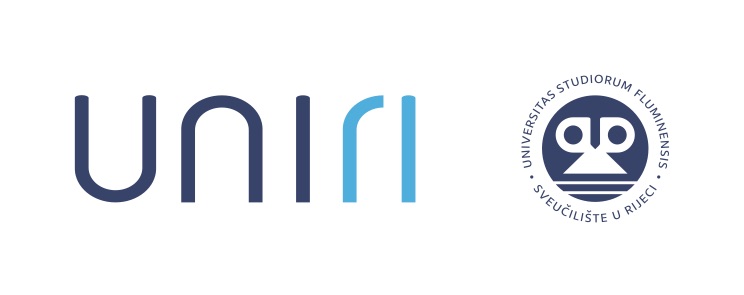Welcome to the WE-COLLAB(*) Project website
and collaboration platform
and collaboration platform
(*) Collaborative and transparent use of Learning Analytics in online university courses, valuing the learner role and exploiting advanced monitoring equipment
go to the home of the WE-COLLAB community and use the About menu to come back to this Cover page
Project objectives
We are currently at a critical junction on the road to the digital transformation of higher education:
At the beginning of the COVID-19 crisis, higher education institutions rushed to adopt online teaching on a scale never seen before. Now, as countries across Europe are scaling up their vaccination programs and ease lockdown restrictions, many students no longer want the rigidity of a single mode of delivery, and prefer more flexible blends of asynchronous, synchronous and F2F modes.
At the beginning of the COVID-19 crisis, higher education institutions rushed to adopt online teaching on a scale never seen before. Now, as countries across Europe are scaling up their vaccination programs and ease lockdown restrictions, many students no longer want the rigidity of a single mode of delivery, and prefer more flexible blends of asynchronous, synchronous and F2F modes.
Inexperienced online teachers tend to replicate their face-to-face courses instead of redesigning them in order to address the challenges of online learning. Under-resourced IT units are not able to provide teachers with the expertise they need to re-think their pedagogy and to provide effective and inclusive instruction to all their students.
The project WE-COLLAB directly addressed challenges that often characterise poorly designed online courses, such as ‘Zoom fatigue’, higher levels of distractibility and information overload. Non-cognitive challenges include lack of self-regulation and a sense of being isolated from teachers and peers. Another objective was helping teachers to build higher levels of engagement into the course design, using innovative methods of identification of cognitive and emotional states derived from research on behavioural and neurophysiological data analysis.
A third objective dealt with enabling teachers to utilize learning analytics (LA) to recognize the need for extra attention, when the impossibility of communicating nonverbally makes it extremely difficult to to identify online students at risk of dropping out. But LA can also provide an essential support to students' self-regulated learning strategies as well as channels to send implicit and explicit feedback signals to the teachers, as long as tracking and analysis tools are introduced transparently and used in a controlled manner in order to create a climate of mutual trust.
The project also provided an experimentation environment for assessing and improving new approaches to the analysis of learning materials and teaching styles in order to achieve higher levels of student engagement in learning, both in emergency situations - like the one we faced in 2020-2021 - and in the “new normality”.
Activities and results
PR1 - Infrastructure and tools
- Presentation at KTU - Kaunas Technical University: The Student Feedback App (LINK - Project Meeting in Kaunas, 29-30 November 2022) - get
- Learning Path: Development of a Student Feedback App for the WE-COLLAB project - run
- Learning Path: Tools for Text Analysis in WE-COLLAB - run
PR2 - Digital materials analysis
- Learning Path: Possible use of glossaries in WE-COLLAB - run
- Learning Path: Prototypical Collection of Learning Materials for Essay Writing Course at Sapienza - run
PR3 - Learning Analytics and Self-Regulated Learning
- Learning Path: Pedagogical Aspects of Learning Analytics - run
- Learning Path: Technological Aspects of Learning Analytics - run
- Presentation at UNIRI - University of Rijeka: KTU Experience in Learning Analytics Tools, Technologies, Applications (KTU - Multiplier Event of UNIRI - 09 December 2024) - view
PR4 - Learning laboratory
- Presentation at UNIRI - University of Rijeka: Major findings - Videos used in online learning: what works best? (CBS - Multiplier Event of UNIRI - 09 December 2024) - get (without the videos)
- PR4 Summary Report - view - get
PR5 - Cognitive and emotional assessment of learners
- Presentation at NTUA - National Technical University of Athens (BrainSigns - Multiplier Event of NTUA - 27 June 2024) - view
- Presentation at UAM - Universidad Autónoma de Madrid: Cognitive and emotional assessment of learners - Final results from conducted experiments (BrainSigns - Project Meeting in Madrid, 1-2 October 2024) - view
- Presentation at Sapienza - Università di Roma (BrainSigns - Multiplier Event of Sapienza - 03 December 2024) - view
- Presentation at UNIRI - University of Rijeka (BrainSigns - Multiplier Event of UNIRI - 09 December 2024) - view
- PR5 Summary Report - view - get
PR6 - Best practices and dissemination
- 27 June 2024, Athens. Multiplier Event at NTUA - National Technical University of Athens
- Presentation at UAM - Universidad Autónoma de Madrid: Analysis of Student Feedback App (UAM - Project Meeting in Madrid, 1-2 October 2024) - view
- 2 October 2024, Madrid. Multiplier Event at UAM - Universidad Autónoma de Madrid
- 3 December 2024, Rome. Multiplier Event at Sapienza - Università di Roma
- 9 December 2024, Rijeka. Multiplier Event at UNIRI - University of Rijeka
- PR6 Summary Report - view - get
Publications
- S. Lariccia, M. Vujičić, G. Toffoli, F. Martinez de Carnero, D. Pantazatos, M. Grammatikou. "Getting and analyzing student feedback in synchronous teaching". Proceedings of the 19th International Technology, Education and Development Conference Valencia, Spain. 3rd-5th March 2025.
- G. Toffoli, S. Lariccia, F. Martinez de Carnero, M. Grammatikou, D. Pantazatos. Making learning material smarter (without Generative AI). Proceedings of the 19th International Technology, Education and Development Conference Valencia, Spain. 3rd-5th March 2025.
- M. Vujičić. "Value for Customers within Face-To-Face and Online Learning Approach". Interdisciplinary Management Research XX (J. Glavaš, N. Papac, and A. Erceg, eds.): Osijek: Josip Juraj Strossmayer University of Osijek, Faculty of Economics and Business in Osijek, Croatia, pp. 347-359, 2024.
- M.A. Penas Ibáñez, I. Solana Domínguez, M. Vujičić, G. Toffoli. "Analysis of implementing We-Collab Student Feedback Application into practice". Proceedings of the International Conference ALTA’24 Advanced Learning Technologies and Applications, Kaunas, 5th of December 2024.
- G. Toffoli, S. Lariccia, F. Martinez de Carnero. "Techniques and tools for textual analysis of educational resources". Proceedings of the International Conference ALTA’24 Advanced Learning Technologies and Applications, Kaunas, 5th of December 2024.
- G. Toffoli, S. Lariccia, M. Manco. "Matching Objective and Subjective Data in the Evaluation of Lectures and Educational Content". Proceedings of the International Conference ALTA’22 Advanced Learning Technologies and Applications, Kaunas, 30th of November 2022.
go to the home of the WE-COLLAB community and use the About menu to come back to this Cover page
Consortium
The project consortium consists of eight institutions - research centers, universities, and SMEs - representing six European countries:
Croatia, Denmark, Greece, Italy, Lithuania, and Spain.
 |
|
 |
|
 |
|
 |
 |
The WE-COLLAB project lasted from February 2022 to January 2025. It has been funded by the ERASMUS+ Programme of the EU under the Agreement 2021-1-HR01-KA220-HED-000027562.

